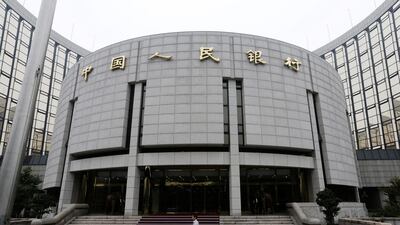I have just been at two keynote Chinese economic gatherings, the China Development Forum in Beijing and the Boao Forum for Asia at Hainan Island. At both I interviewed more than 30 global chief executives, world renowned economists and Chinese policy experts. Confidence appears to be high for China this year. Growth dynamics look better, private investment is up and 2015’s market tantrum a painful but distant memory.
People were clearly concerned about the spectre of trade wars and the risks of China being cited as a currency manipulator by Washington. But one topic furrowed brows the most – debt deleveraging threw a shadow over the conversation as big as the shadow banking system – thought to be worth about US$4 trillion.
Critically, it’s where this debt is concentrated in China that troubles economists. Unlike most western economies China’s local and central government debt is relatively low at barely $4tn, or 36.7 per cent of GDP – compared with 106 per cent in the US or 270 per cent in Japan.
Instead China’s risks appear to be in the banking system and the non-financial corporate sector. The OECD is the latest international body to ring the alarm bell about lending running ahead of growth and income. China’s corporate debt is 175 per cent of GDP, high by any standard. And banking trends are worrisome with the China Banking Association’s bad loans at $220 billion for 2016, with losses from write-offs up 54.6 per cent.
The great financial crisis in 2008, like most previous economic meltdowns, was triggered by a private-sector debt bubble bursting. The concern in China is similarly about a run of corporate failures leading to a house-of-cards style shock to the economy. This would have global consequences given that China was responsible for 35 per cent of global growth in 2016, according to the World Bank.
Beijing has chosen to tackle the debt with a combination of monetary policy and macro-prudential regulation. Banks are being encouraged to move non performing loans off balance sheets and state-owned enterprises (SOE) to reform more quickly. If it works that should slow lending and cool growth.
So far the government’s efforts to slow debt appear to be having an effect. Central bank short-term micro-management of interest rates and lower growth targets produced a slowdown in shadow banking and mortgage lending in February. New loans from banks fell to 1.17tn yuan vs January’s 2.03tn yuan.
However, this strategy is a blunt instrument and starves worthy borrowers of capital. It causes liquidity to fall as large lenders hoard cash.
But there is an opportunity to disperse the risk of a credit event without choking off growth. Capital markets can lay off risk if allowed to work freely. For example, non-bank financials such as insurers want debt with a long-term regular yield for liability matching. Bonds issued in China last year totalled $5.2tn, a 54 per cent rise on 2015. But anywhere between 60 per cent to 80 per cent of outstanding bonds are owned by commercial banks, which concentrates risk in the banks.
Distressed debt funds, private equity and asset management companies are all non-bank sources of capital. But restrictions on private equity exits via the initial public offering pipeline and the dislike of “vulture funds” limits their room for manoeuvre.
The ultimate sanction on poorly allocated risk capital is loss. Excess capacity is shed, zombie companies are left to die and lenders are penalised for bad choices.
China still appears not ready for such culling of inefficient parts of the economy.
And it’s clear from my interviews, old thinking is still widespread. SOEs are less than a fifth of the economy but in many provinces are still valued for their social welfare function; securitisation is unwelcome.
Although a record 120 asset-backed securities were sold last year, the $49.76bn raised was down 20 per cent on 2015.
China bulls point to large trade surpluses, a controllable 3 per cent fiscal-deficit target for 2016, 6.5 per cent growth this year and the $3tn reserves as evidence China has successfully monetised debt in the pursuit of growth and can deal with any credit risks.
The Chinese banking system is still far from being distressed. Total Chinese debts are one-times bank deposits, while in the US they are 2.5 times deposits. Chinese banks are largely funded by deposits therefore the only risk is a loss of confidence in the banks, which appears highly unlikely anytime soon.
Short term the bulls may be right, but not addressing pockets of liquidity risk is storing up trouble for the future.
Geoff Cutmore is co-anchor of Squawk Box, CNBC's flagship show in Europe.
business@thenational.ae
* The National and CNBC are global content sharing partners. This article also appears on CNBC's website here.
Follow The National's Business section on Twitter

